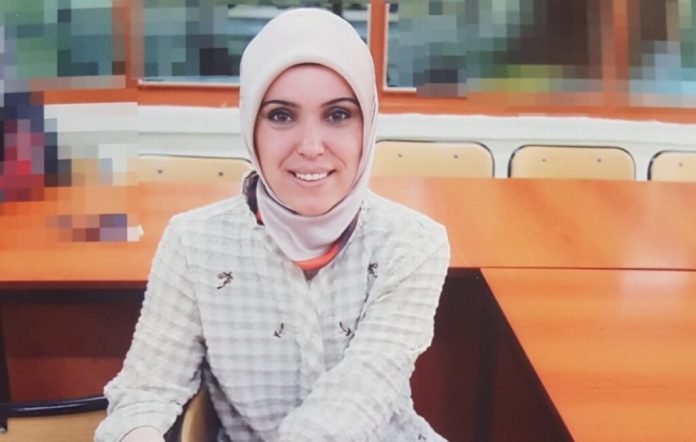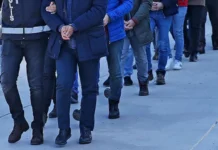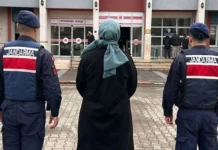Nagehan Yüksel, a former teacher at a religious high school who was convicted of terrorist organization membership due to her links to a faith-based group, has been given a disciplinary punishment for revealing in a letter to an opposition lawmaker that she had been subjected to a strip-search in prison, the Bold Medya news website reported.
The Turkish government accuses the Gülen movement, inspired by Islamic cleric Fethullah Gülen, of masterminding a coup attempt in July 2016 and labels it a terrorist organization. The movement strongly denies involvement in the coup attempt or any terrorist activity, although its real or suspected followers have been subjected to a heavy crackdown for years.
Yüksel, a mother of three, was jailed in February after a prison sentence of nine years on conviction of terrorist organization membership was upheld by the Supreme Court of Appeals.
She used to work at an imam-hatip, or religious high school, in the central Turkish province of Eskişehir. She was first jailed in İstanbul and then transferred to a prison in Eskişehir in August upon her request since her family lives there.
Yüksel said she was strip-searched upon her admission to Eskişehir Prison and conveyed this in a letter to Ömer Faruk Gergerlioğlu, an MP from the pro-Kurdish Peoples’ Democratic Party (HDP). However, the prison administration confiscated the letter and referred Yüksel to the prison’s disciplinary committee because she had written about the strip-search.
Yüksel wrote another letter explaining what had happened and managed to have this letter reach Gergerlioğlu. She asked Gergerlioğlu, “Can you tell the people who say ‘There are no strip-searches in Turkish prisons’ that I was strip-searched by two officers at Eskişehir Prison at 5:45 p.m. on 04.08.2022. When they were going to search me, I asked them if this was a strip-search, and they replied, ‘Yes, this is a strip search.’ I knew the answer to the question, but I wanted it confirmed by them.”
The practice of conducting strip-searches in Turkish prisons was vehemently denied by Interior Minister Süleyman Soylu and ruling Justice and Development Party (AKP) lawmaker Özlem Zengin when it was first brought to the nation’s attention by Gergerlioğlu in late 2020, prompting scores of women as well as men to share on social media their experiences of strip-searches.
According to Turkish legal and preventative search regulations, strip searches can only be conducted in exceptional cases, such as when there are credible indications that the person has contraband materials on him. In such cases the search must be conducted in a manner so as not to humiliate the person and as quickly as possible. When there is a credible suspicion that something is hidden in the person’s body, officers are required to ask the person to remove it himself and inform him that if he disobeys, the removal will be done by the prison doctor.
The European Court of Human Rights has found strip-searches to constitute degrading treatment when not justified by compelling security reasons and/or due to the way they were conducted.
But the practice has been used frequently by Turkish security forces against people suspected or convicted of political crimes, especially since the coup attempt in July 2016.















